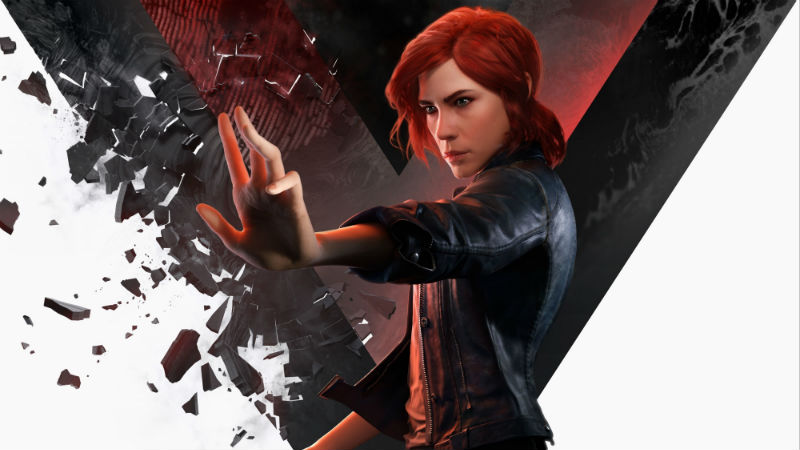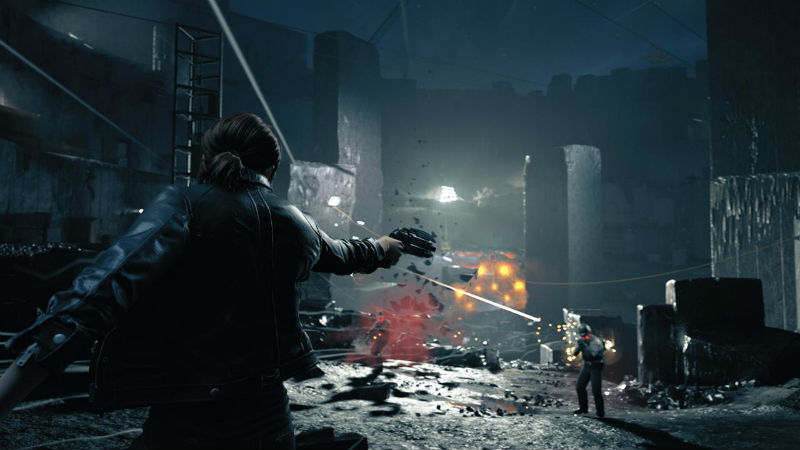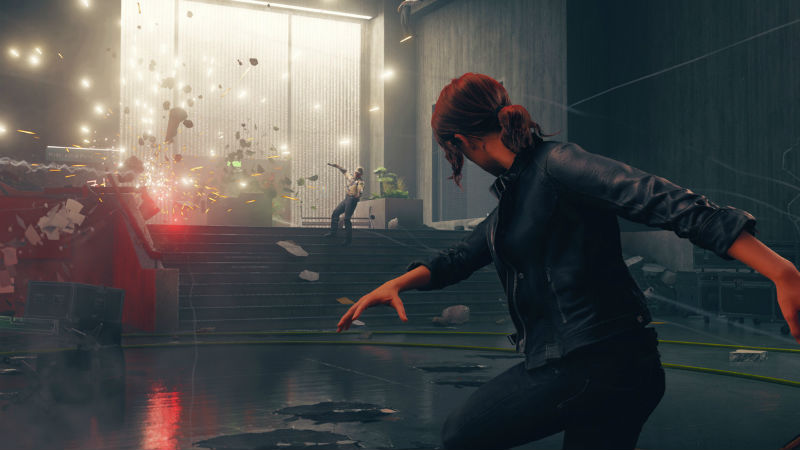Game reviews
Control Review – A Supernatural Shooter to Bend Your Mind
From the makers of Max Payne and Alan Wake, Control breaks new ground while relying on some solid gameplay foundations.

It’s difficult to talk about Control‘s story without revealing too much. The narrative is Twilight Zone-inspired, tightly-wound thread of mystery that becomes to unravel as you make your way through the game, full of spectacular revelations and bizarre moments. The crux of it, though, is that you play as Jessie Faden, who has been suddenly thrust into the role of The Director in a shadowy and tight-lipped organisation known as The Bureau of Control, who don’t seem too benign or malevolent, but have made a bit of a boo-boo by fiddling with the paranormal and unleashing a threat known as The Hiss into the bureau’s building, which itself is a giant constantly-shifting structure.
While the premise and plot has hints of sci-fi classics and some familiar ideas, the story is one of the most unique seen in recent times. It’s excellently told through some stellar voice acting, with some great performances that leave you hanging onto every word a character sprouts, in order to try and find out what the hell is actually going on. In typical Remedy fashion, there are also tons of voice logs and written reports scattered throughout the world (acting as collectables), fleshing out the lore and understanding of what the Bureau of Control is all about and what exactly went wrong. Despite the extraordinary nature of the game’s plot, with all these little hints and moments of exposition, Remedy have done a superb job at creating a convincing and captivating world, resulting in one of the most atmospheric games ever made.

While the story is packed full of more intrigue than a CSI episode, the gameplay will be somewhat familiar to fans of Max Payne and Alan Wake (and most similar to Remedy’s most recent release, the underappreciated Quantum Break), albeit with some new tricks thrown in the mix. At this point, the third-person shooting formula has almost been perfected by Remedy, but Control adds in two major variables: a weapon and Jessie’s psychic powers. You use one singular handgun throughout the game, but this isn’t any normal pistol. It has the ability to shift and change its shots and firing rate, turning into more of a shotgun, charged rifle-shot, or uzi-like weapon, for example, among a few other variations. These can be upgraded and modded, providing some strategy for how you want to approach certain enemies. As for Jessie’s powers, they’re an important part of combat, traversal, and puzzle-solving.
The game’s brilliantly-realised physics system allows you to use telekinetic powers to lift just about any object in the game (or even pulling pieces of the walls loose if there’s nothing else in sight) in order to project towards enemies. The offensive attribute of these powers is a really satisfying feeling to have, and can be used quite strategically to try and launch an explosive container, for example, but the defensive uses (catching a missile mid-air and sending it back or using debris as a shield) really makes you feel like a Jedi.

Mixing up the firefights is also the element of verticality thanks to the ability to levitate and hover around the environments. It isn’t unlimited, but you can evade a tricky situation with ease or get the drop on some unsuspecting enemies with it, not to mention it’s importance in reaching new areas of the map as they become available.
Speaking of, the interior of The Bureau of Control building (known as The Oldest House) is a character unto itself. Shifting and cascading walls, much like that of a scene out of Inception, are common-place throughout Control, and by design, perfectly lays out the passage of the game in the style of a Metroidvania adventure. Making your way through the building to mission areas, you spot cornered-off sections or areas just out of your reach, but as you take back Control Points (the fast-travel and upgrade points of the game), walls slide and ceilings raise, opening up these new areas which you can backtrack on and explore. It really does feel like a modern haunted house, that keeps repositioning itself as you turn you back – and it’s a lot of fun to watch.

With all these dazzling pieces in place, the game really does shine. However, there is a small caveat to the breathtaking visuals and action. As per the launch version of the game, Control does suffer from some frame-rate issues when the action really heats up. It doesn’t hurt the game too much, but you may stutter through a few short seconds in a gunfight – hopefully something that can be patched with an update.
Saying anything bad about Control seems unjust, as everything from the story, gameplay, and visuals are breathtakingly beautiful and unsettling, in a good way. The bugs can’t be completely neglected, but they’re extremely minor blemishes on easily one the best games of 2019 so far.
Control is available now on Xbox One, PS4, and PC.





















